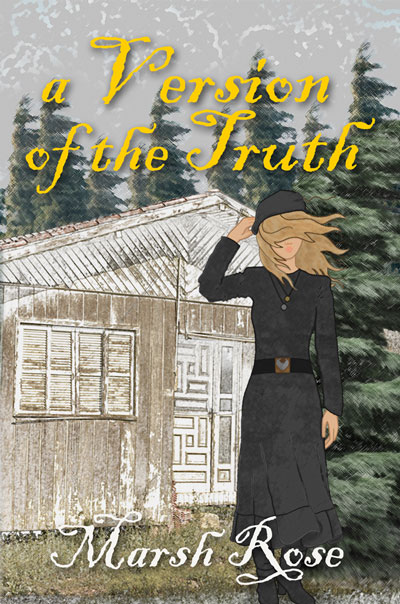
Estimated reading time: 5 minutes
A therapist encounters a life plot twist that challenges her own abilities to process her 30 year relationship with a now ailing man
—
What do we do when an emotionally devastating experience doesn’t fit our idea of a trauma? What if it’s slow and quiet instead of sudden and explosive, it lasts for decades instead of moments, but it creates a ripple that becomes a wave and then a metaphoric tsunami? This is what confronted me when I found myself at the end of a predictable, stable relationship…or so I thought.
It was 1985 and I had just landed in California from the east coast to accept a job I’d love, as a staff psychotherapist in a drug treatment program. Then I found that the cost of living in “the wine country” was about as pricey as a chateau in the French Riviera. All I could afford was a crumbling farmhouse on a dusty cul-de-sac, and an absentee landlord. My clients’ issues seemed benign relative to the needs of my new rental. Thoughts and feelings were difficult to understand, but I found few of them as alarming as the reason why the bungalow’s lights kept flickering each time I flushed the toilet. Along came my neighbor Jack, a construction worker who could, it seemed, fix any DIY problem armed with nothing but a flashlight and a toothpick.
We quickly realized our mutual attraction. With both of us loving our independence but craving intimacy, we evolved a comfortable routine of two nights together, daily phone contact, and the occasional weekend getaway. Neither of us felt the need for the traditions of marriage and a shared home. We were Baby Boomers…that’s what we all did! For the next three decades, Jack and I walked one another through changes in careers, cars, houses, pets, crises and celebrations. He stayed by my side and maintained our routine even after I landed a home of my own, 40 miles up the freeway from his farm.
And then, the picture shifted. Jack’s health began to deteriorate and I found myself in a dilemma that confronts so many of my generation.
Our “domestic partners” needed us, but our names weren’t listed on their property, we weren’t their “Health Care Directors” on any formal statement, we couldn’t call their doctors for updates, and yet, our emotional ties bound us to them in their sickness just as they did in our health.
For almost two years, I watched nearly helplessly as Jack’s memory began to fail, he suffered a heart attack and a mild stroke, and his ability to manage the demands of his own property became almost more than he could handle. I did what I could for him: gallons of fresh water when his well failed during our drought, fabricating reasons to hire a handyman to take on projects in my new home when I feared Jack might fall from a ladder, monitoring his medication and pleading with him to let me do more for him, as his need for independence became an impediment and I feared for his safety.
And then… when the worst case eventually happened and Jack succumbed to a devasting stroke and the Alzheimer’s that took his memory and speech, I learned that my role in his life was apparently not what I believed it to be.
He had vanished. It took me two weeks of panic and confusion to find him, and when I did, I was flabbergasted. Who was this woman who had, it seemed, materialized out of nowhere to house and feed and medicate and bathe him, hire around-the-clock nurses, take him to doctors and, sometimes, to the emergency room? To cope with his increasing violence as the tragic symptoms of Alzheimer’s began to manifest?
She clearly had no idea who I was. A friend of Jack’s gave me her phone number, and she willingly gave me updates but never asked who I was or how I knew him.
I knew the dangers. I could have confronted her, told her my history with Jack and demanded to know hers. Was she his wife, mistress, someone who had always been in love with him and now, after years of unrequited longing, had stepped in to care for him? But what would be the outcome of such a confrontation? If they were married and I was “the other woman,” the pain it could cause if she knew about us could last for the rest of her life and surely would affect their relationship, while I would achieve nothing more than a moment of clarity. There would be no reckoning with him. He couldn’t speak and his memory was lost. I wanted the truth, but only two people could offer it. One couldn’t speak and the other couldn’t know the question.
I wandered in this hall of mirrors for weeks until a kind friend helped me see the light. We all live with uncertainty and the unknown. We all face mysteries that will never be solved. I realized, from that epiphany, that I had three choices. I could go on searching for the truth, allowing its absence to rob me of my time and health. Or I could deny that I wanted to know the answer, while the need to know hovered on the periphery of my consciousness. Or I could get a version of the truth that I could live with, and live with it. The particulars are not important. The key to my peace of mind was coming to terms with my version of the truth and the realization that sometimes we never get the answer.
You may also enjoy reading Luminous Darkness: A Radical Path to Embracing the Unknown, by Deborah Tull.
